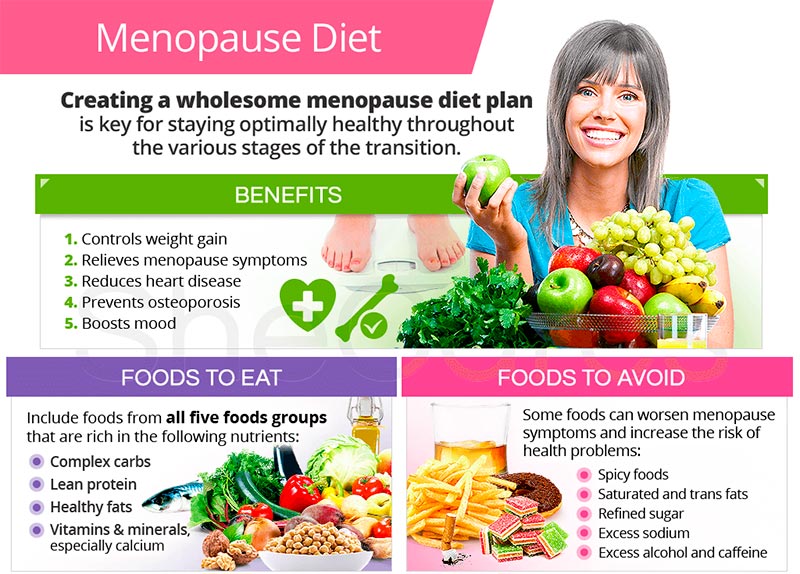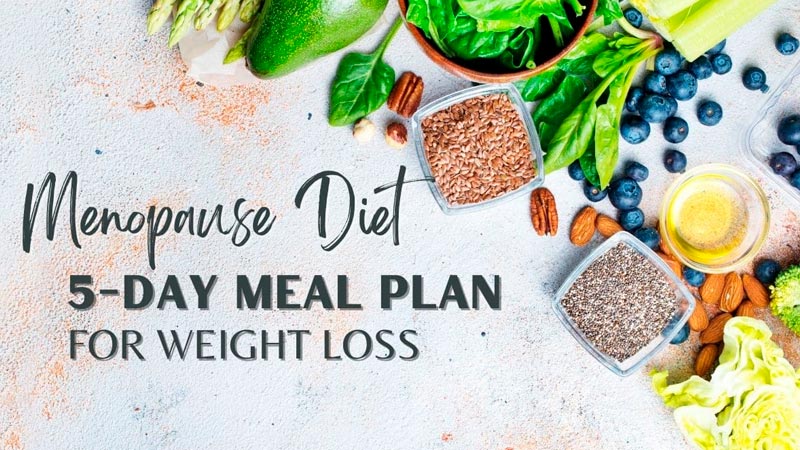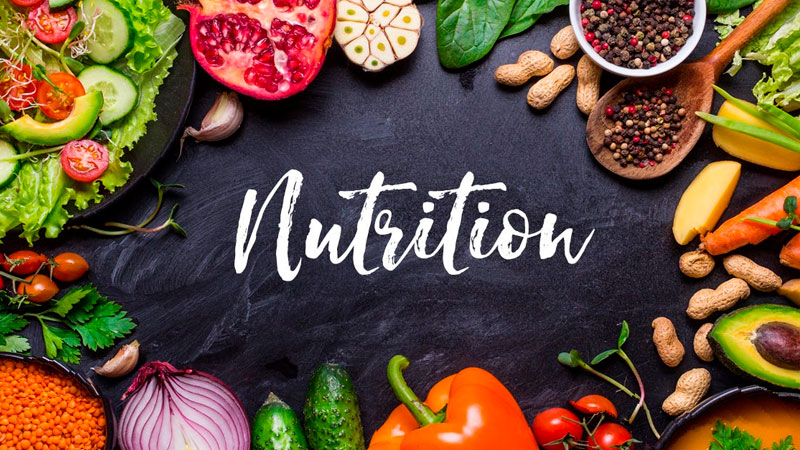The menopause diet is a specific dietary approach for women who are going through this period of hormonal transition. During the menopause, the body goes through significant changes that can affect health and weight.
Table of Contents
It is common for women to gain weight during this period, but a proper diet can help control weight gain and improve overall health.
The menopause is a phase of life that brings with it a series of changes in women's bodies, including hormonal changes that can affect weight and metabolism.
Many women face the challenge of gaining weight during the menopause, which can be frustrating and worrying. However, with a balanced approach to diet and exercise, it is possible to manage weight effectively during this phase of life.
In this article, we present a 5-day diet plan to help menopausal women lose weight in a healthy and sustainable way. The plan includes nutrient-rich foods that can help reduce menopausal symptoms and promote weight loss.
Understanding the Menopause
The menopause is a natural process that occurs in every woman's life. It is a time of transition in which the female body undergoes various hormonal changes. Menopause is defined as the period of time when a woman does not menstruate for 12 consecutive months. This usually occurs between the ages of 45 and 55.
Menopause symptoms
During the menopause, many women experience a variety of symptoms, including hot flushes, night sweats, insomnia, mood swings, vaginal dryness and decreased libido. These symptoms are caused by hormonal fluctuations that occur during the menopause.
Effects of the menopause on weight
The menopause can have a significant impact on a woman's body weight. As the body ages, metabolism slows down, which can lead to weight gain. In addition, the decrease in oestrogen levels can affect the distribution of fat in the body, leading to an increase in abdominal fat.
To help combat weight gain during the menopause, many women turn to special diets. The menopause diet can help control weight and reduce menopause symptoms.
The menopause diet emphasizes nutrient-rich foods such as fruits, vegetables, whole grains and lean proteins, while limiting consumption of processed foods, sugars and saturated fats.
The menopause is a natural process that all women experience. Understanding the symptoms and effects of menopause on weight can help women manage this transition in a healthy and positive way.
The 5-Day Menopause Diet

The menopause is a time of change for the female body. As oestrogen levels decrease, the body begins to store fat differently, which can lead to weight gain. The 5-day menopause diet is an eating plan that can help you lose weight during this transitional period.
The importance of nutrition
A healthy diet is essential for health at any stage of life, but it is especially important during the menopause. Proper nutrition can help reduce the symptoms of the menopause, such as hot flushes and irritability. In addition, a balanced diet can help maintain a healthy weight and prevent chronic diseases such as diabetes and heart disease.
Key components of the diet
The 5-day menopause diet is based on healthy and nutritious foods, rich in nutrients that are important for women's health. Key components of the diet include:
- Lean proteins such as chicken, fish and tofu.
- Fresh fruit and vegetables, which are rich in vitamins and minerals.
- Whole grains, such as brown rice, oats and quinoa.
- Healthy fats such as avocado, nuts and olive oil.
- Calcium-rich foods such as milk, yogurt and cheese.
When following this eating plan, it's important to limit your intake of processed foods, sugars and saturated fats. Drinking plenty of water and taking regular exercise are also important for maintaining a healthy lifestyle.
The 5-day menopause diet can be an effective eating plan for losing weight and improving health during the menopause. However, it's important to talk to a doctor or nutritionist before starting any diet or exercise plan.
5-Day Meal Plan

The menopause diet 5-day meal plan is designed to help women lose weight and maintain a healthy diet during the menopause. The plan includes balanced, nutritious meals that help control menopausal symptoms such as hot flushes and mood swings.
Day 1:
Breakfast: Fruit smoothie with Greek yogurt and chia seeds.
Morning snack: 1 apple and a handful of walnuts.
Lunch: Grilled chicken salad with vegetables and yogurt dressing.
Afternoon snack: 1 Greek yogurt with fresh fruit.
Dinner: Grilled salmon with asparagus and sweet potato.
Day 2:
Breakfast: Spinach and mushroom omelette with wholemeal toast.
Morning snack: 1 orange and a handful of almonds.
Lunch: Tuna salad with vegetables and lemon dressing.
Afternoon snack: 1 Greek yogurt with fresh fruit.
Dinner: Roast chicken with vegetables and brown rice.
Day 3:
Breakfast: Avocado toast with egg and tomato.
Morning snack: 1 pear and a handful of walnuts.
Lunch: Vegetable soup with grilled chicken.
Afternoon snack: 1 Greek yogurt with fresh fruit.
Dinner: Grilled steak with broccoli and sweet potato.
Day 4:
Breakfast: Protein shake with fruit and linseed.
Morning snack: 1 apple and a handful of almonds.
Lunch: Salmon salad with vegetables and mustard dressing.
Afternoon snack: 1 Greek yogurt with fresh fruit.
Dinner: Chicken curry with vegetables and brown rice.
Day 5:
Breakfast: Greek yogurt with granola and fresh fruit.
Morning snack: 1 banana and a handful of nuts.
Lunch: Shrimp salad with vegetables and coriander sauce.
Afternoon snack: 1 Greek yogurt with fresh fruit.
Dinner: Grilled fish with vegetables and quinoa.
This 5-day menopause diet meal plan is a healthy option for women who want to lose weight and maintain a balanced diet during the menopause. It's important to remember that each person is unique and may need to adjust the plan according to their needs and dietary preferences.
Exercise and Menopause
Benefits of Exercise
Regular physical exercise can have many benefits for menopausal women. Studies show that physical activity can help reduce menopausal symptoms such as hot flushes, insomnia and depression. In addition, exercise can help maintain muscle and bone mass, which are often lost during the menopause.
Recommended exercises
There are many types of exercise that can be beneficial for menopausal women. Here are some examples:
- Aerobic exercises: walking, running, cycling, swimming, dancing.
- Strength exercises: weight lifting, yoga, pilates.
- Balance exercises: tai chi, yoga.
- Stretching: yoga, Pilates.
It's important to choose an exercise that you enjoy and that you can easily incorporate into your daily routine. It is recommended that menopausal women do at least 150 minutes of moderate physical activity a week.
Weight maintenance after the diet
After following the 5-day menopause diet plan, it's important to maintain a healthy lifestyle to keep the weight off. Here are some tips for maintaining your weight after the diet:
- Eat foods rich in fiber, such as fruits, vegetables and whole grains. They help maintain the feeling of satiety and control hunger.
- Drink plenty of water to keep your body hydrated and help control your appetite.
- Limit your consumption of processed foods, sugar and saturated fats. These can lead to weight gain.
- Exercise regularly to keep your metabolism active and burn calories.
- Sleep well, as lack of sleep can lead to hormonal changes that affect weight.
By following these tips, you can maintain your weight after the diet and continue to lead a healthy life.
Remember that the menopause is a natural phase of life and should not be seen as a sentence to inevitable weight gain. With a balanced diet, regular exercise and a healthy lifestyle, you can manage your weight and enjoy an active and satisfying life during the menopause and beyond.
Consulting a health professional is key to customizing your diet plan according to your individual needs.
Eat well, live better!




